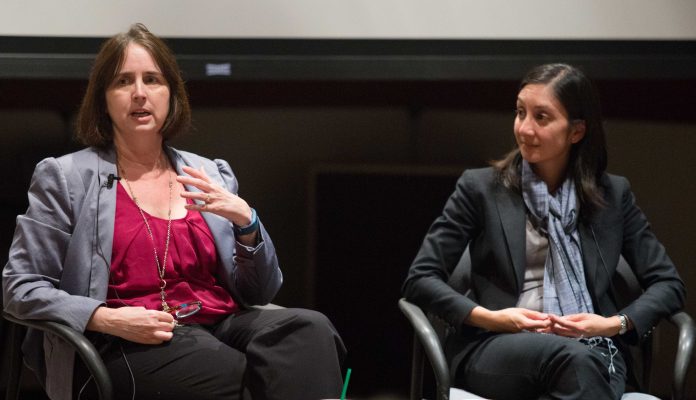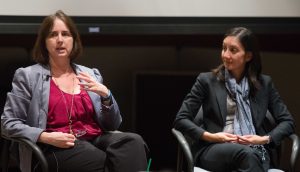

A panel of three leading academic figures in the field of cybersecurity in the United States, China, and Russia on Tuesday afternoon gave their thoughts on the issue that has garnered much attention lately, from Colin Powell’s hacked emails to a bid to pardon Edward Snowden.
Sarah Oates of University of Maryland, Jack Bratich of Rutgers University, and Shanthi Kalathil of Georgetown University, offered their views on the authoritarian role in foreign internet control as well as the future of the internet. It was held at the Pulliam Center for Contemporary Media’s Watson Forum.
The panel began with DePauw’s Maria Hristova, assistant professor of Russian Studies. Hristova said the internet is “the last frontier combining individual interests with the state corporations.”
The three guests spoke about their research on how specific countries internet usage has affected corporations, and whether authoritarian rule has restricted the rights of citizens.
Bratich spoke about his specialty, which revolves around pop culture versus political culture, and the benefits of how free rein on the internet allows for the general public to use their First Amendment rights.
Kalathil continued the discussion by reflecting on her experience in China, and how its authoritarian form of control makes things such as “posting something that is incorrect about a leader...a way to be breaking the law.” Kalathil focused on the need for boundaries within a spectrum of internet freedom so it’s being used appropriately, rather than for misinformation.
Oates’ view of Russia’s online experiences mirrored Kalathi’s take on China because the government “has come along and slowly pulled freedom away from [its] users.”
The speakers tackled the most difficult questions involving internet freedom, including effects on regular users. When posting online, the general public “leaves a trace of everything they do and that something innocent online can affect job opportunities,” Oates said.


